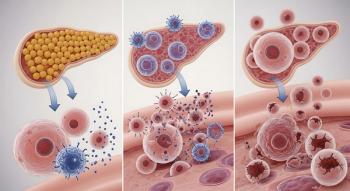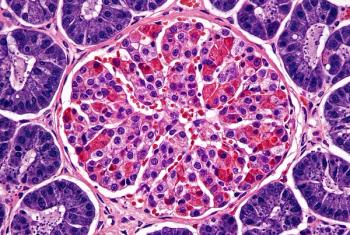
Breakthrough T1D Awards $2.8 Million for New Center of Excellence
The new research center at the University of Michigan and Oregon Health & Science University intends to develop a clinical trial platform that will be used to test several heart and kidney therapies in people living with type 1 diabetes.
Breakthrough T1D, formerly JDRF, has awarded more than $2.8 million over three years to the University of Michigan and Oregon Health & Science University for a joint center of research on type 1 diabetes.
The award creates a new center, Breakthrough T1D U-M-OHSU Cardiorenal Center of Excellence, which expands on the work of the existing research center at the University of Michigan.
The new center will be led by Matthias Kretzler, M.D., Ph.D., and Rodica Pop-Busui, M.D., Ph.D., both with the University of Michigan, and researchers will establish a clinical trial platform that will be used to test several heart and kidney therapies in people living with type 1 diabetes.
Research at the new center will build on the work completed over the last five years at the University of Michigan. Researchers had conducted research in beta cell replacement therapies, automated insulin delivery systems, psychosocial health, metabolic control, and long-term complications of the eye, heart, and kidney from type 1 diabetes.
The new center is one of five that Breakthrough T1D has funded. Other centers are located in New England, Northern California, Australia, and the University of British Columbia.
Work at these centers is already beginning to yield answers about type 1 diabetes. For example, at the Center in Australia, researchers have found that indirectly altering the gut microbiome through an oral supplement can delay the development of type 1 diabetes. In a study
Led by Professor Emma Hamilton-Williams, from the Frazer Institute, and Dr. Eliana Mariño, from Monash University, researchers showed that using the oral supplement led to an improvement in participants’ gut microbiome and immune response. Researchers then transplanted samples from patients’ microbiome to mice who were at risk of developing type 1 diabetes. These mice had beneficial microbiome changes and developed type 1 diabetes more slowly.
Another insight from researchers in Australia is that COVID-19 infections were not linked to the early stages of type 1 diabetes development, according to research
These researchers found that the rates of islet autoimmunity in the ENDIA children remained the same during and after the pandemic. Additionally, the rates of islet autoimmunity were the same between children who had a past COVID-19 infection and those who did not.
Work continues at other centers. At the Center of Excellence in New England, researchers are working to identify different subsets of immune cells that target beta cells and exploring new technologies, such as gene editing, to create beta cells that can evade immune attack.
At Stanford University and the University of California, San Francisco, researchers are assessing how immune cells interact with islets and beta cells and developing an islet transplant protocol that will induce tolerance and not require immunosuppression. At the University of British Columbia, researchers are working to build better beta cells for islet replacement therapy and protect insulin-producing beta cells from immune attack.
Type 1 diabetes is an autoimmune disease where the immune system destroys insulin-producing beta cells in pancreatic islets. About 2 million Americans have type 1 diabetes, according to the CDC.
Newsletter
Get the latest industry news, event updates, and more from Managed healthcare Executive.

























